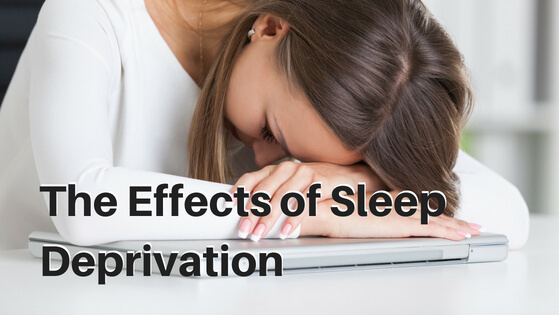The Effects of Sleep Deprivation
Are you experiencing difficulty in falling or staying asleep? Are you getting sick and tired of spending sleepless nights?? Are you looking to find relief from the negative consequences of inadequate sleep? Do you experience tiredness, difficulty in concentrating, mood swings, crankiness after a sleepless night?
If answer to all these questions is a Yes; you need to take charge of your life and introduce heathy lifestyle changes to restore healthy sleep patterns.
We all desire and crave for a good night sleep because adequate sleep has remarkable benefits on human mind and body. But unfortunately, many of us are unable to achieve sufficient sleep due to a variety of factors some of which are modifiable.
What is Sleep deprivation?
Sleep deprivation refers to inability to get adequate, restful and relaxing sleep. Inadequate sleep is an umbrella term that denotes lack of sleep or inability to achieve good quality sleep. Research indicates that chronic sleep deprivation can negatively affect your brain, mood and may increase the risk of developing several health-related issues like laziness, fatigue, weight gain or loss, poor immunity, infertility, cardiac diseases, glucose intolerance and even premature brain aging etc.
The adequate amount of sleep varies from person to person however; healthcare providers recommend an average healthy adult requires 7-9 hours of restful and uninterrupted sleep per night.
What are the effects of sleep deprivation?
Restful sleep is vital to body and mind to function properly. You may be wondering what happens to people who doesn’t get enough hours of restful sleep? What happens if you are sleep deprived for too long?
A student from California University, Randy Gardener held a world record for not sleeping for around 264 hours. He reported symptoms of lack of sleep within the first 24 hours that worsens over the period of study, culminating in hallucinations and other psychotic symptoms.
Chronic sleep deprivation can lead to:
- Inability to concentrate or focus:
Lack of sleep reduces your ability to focus on issues that matters by altering your concentration.
- Increased risk of getting into accidents:
The National Sleep Foundation, renowned US organization stated that lack of sufficient sleep (typically less than six hours per ad) increases the chances of getting involved in various tragic accidents because of ocular coordination effect.
- Weight gain or weight loss:
Lack of sleep causes weight gain or loss of muscle mass. St. Luke’s Roosevelt Hospital conducted a research according to which, lack of sleep is linked with increased craving of junk foods and impaired digestion. Sleeplessness also deteriorate the biological activity of two hormones i.e. Leptin and Gherlin. These hormones are responsible for modulating the feeling of hunger and fullness. Lack of sleep reduces leptin production and enhances Gherlin release, which is responsible for late night craving and overeating. Also, it makes you tired and sluggish; further contributing to laziness, sedentary lifestyle and weight gain.
- Endocrine system:
The production of hormone is largely dependent on the sleep. Staying up at night is known to interrupt the production of certain hormones like testosterone.
- Cardiovascular system:
People who fails to get sufficient sleep are more prone to develop cardiovascular diseases. A study published in European Journal of Preventive Oncology, research team suggests that insomnia is directly related to increased risk of stroke and heart attack. Insomnia exerts adverse impact on certain processes that helps in the healthy functioning of heart and blood vessels.
- Premature skin aging:
The hormones that yield elasticity to skin and reduces the appearance of wrinkles are produced when you are sleeping. Not getting sufficient sleep can also result in skin aging and wrinkles.
Other side effects of sleep deprivations are anxiety, tiredness, reduced libido, erection problems, mood swings, anger and other diseases. Proper and good quality sleep is very important for physical and mental health of an individual. Getting desired sleep makes you feel fresh and boost your energy levels.

